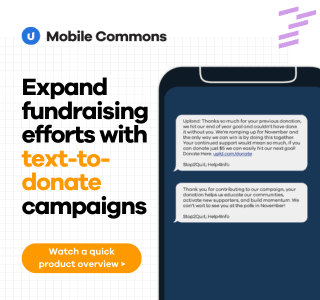 Medication non-adherence is an overwhelmingly pervasive issue in the healthcare industry. Nearly 75% of adults are non-adherent in one or more ways, costing the healthcare industry $300 billion annually.
Medication non-adherence is an overwhelmingly pervasive issue in the healthcare industry. Nearly 75% of adults are non-adherent in one or more ways, costing the healthcare industry $300 billion annually.
Medication non-adherence’s reasons are as far reaching as its consequences. Health literacy, disorganization, low self-efficacy, and forgetfulness make up 75% of non-adherence cases. Its multiple causes make it difficult to address, and the responsibility for ensuring compliance often falls on unreliable shoulders.
Friends and family members, for instance, may try to assist, but they cannot ensure full-on support 100% of the time. Informational packets, detailing correct dosage levels and times, are helpful, but aren’t guaranteed to be read or even understood.
Fortunately, there is a solution. More and more studies show that text messages are the smartest, most effective way to address medication non-adherence and encourage patient compliance. A simple daily text message is immediate, personable, always available, and easy to use.
How and why does it work so well?
Text Messages are Fast and Always By Your Side
90% of all adults in the U.S. own a cell phone. Anyone with a basic cell phone or smartphone can send and receive texts—indeed, even adults 65 and older send an average of 5 texts per day. This makes text messaging the most accessible way to reach the widest audience of patients. All it takes is a simple text message reminder at the time of each dosage to ensure a patient takes his or her medication.
Since people virtually never leave home without their cell phones, text message reminders also function as a 24/7-on-call private assistant. 99% of text messages are read within the first 90 seconds, which means that text messaging ensures that patients take their medication in a timely manner, as opposed to voicemails, emails or other mobile notifications, which they may not check as frequently.
These features—accessibility and immediacy — make text messaging a more effective support system than informational packets, friends and family members, Post-it notes, or even daily calendars.
Text Messages Are Personable and Private
Many chronic patients who take multiple medications a day at various times are overwhelmed by the amount of information included with each pill. According to OptumRx, 27% of medication non-adherers default on their medication because of health literacy issues. A personalized text message cuts through all the excess information to give patients simple, direct instructions about their medication.
Text messages encourage compliance by syncing up to a patient’s medication schedule, ensuring that they their personal well-being does not slip through the cracks. With Upland Mobile Messaging, you can upload a personal medication schedule directly into our platform so that text message reminders are automatically scheduled for the correct times. A text message tailored towards a patient’s exact medication schedule is a more active way of keeping the patient on track to recovery and reducing the likelihood of missed doses. And since text messages are discreet and personable, they allow the patient to feel engaged and cared for no matter where they are or what they are doing.
More and More Healthcare Professionals Are Sending Text Messages
 OptumRx recently ran a study involving two groups totaling 5,746 patients. One group received daily medication reminders via text messages, and the other did not. The results were astounding: the group who received daily text message reminders had “significantly higher chronic oral medication adherence rates compared with members not opting to receive reminders.” The savings per member per year were $724, leading to an annual savings of $724,00 for just 1,000 patients!
OptumRx recently ran a study involving two groups totaling 5,746 patients. One group received daily medication reminders via text messages, and the other did not. The results were astounding: the group who received daily text message reminders had “significantly higher chronic oral medication adherence rates compared with members not opting to receive reminders.” The savings per member per year were $724, leading to an annual savings of $724,00 for just 1,000 patients!
Healthcare professionals aren’t the only ones wising up. A new study by FICO shows that 80% of patients want the option of using their smartphone to interact with health care providers. Stuart Wells, FICO’s chief product and technology officer, explains that individuals are becoming “more and more sophisticated about using information technology to make health-related decisions.”
Text messaging can also be incorporated into every stage of the patient recovery process. Did a patient accidentally miss a dose? He or she can immediately connect with a healthcare professional via a one-on-one text messaging chat. Do your patients often forget to refill their medication? Sending prescription refill reminders can help ensure that they will never run out. Does your practice have high patient no-show rates? Text message reminders can decrease the rate of missed appointments by over 30 percent!
Utilizing a mobile strategy to curb medication non-adherence is not just a trend. It is a crucial element to strengthening the efficiency of the healthcare industry as whole while helping patients live happier, healthier, and more carefree lives. By using simple text message reminders to increase medication adherence, healthcare providers can save on outpatient care and reduce the rate of patient readmissions.
If you’d like to learn more about how text messages can treat medication non-adherence, or like to start your own mobile campaign, please contact us.


